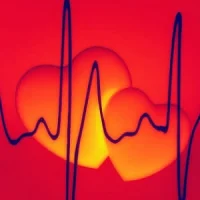A large clinical trial ("RESPECT") led by UCLA researchers shows that closing a small hole in heart may protect against recurrent stroke. The method is a new treatment option for some people and its use should be a "clinical decision between the doctor and the patient about who's the right person to get it," said Dr. Jeffrey Saver, director of the UCLA Comprehensive Stroke Center and lead author of the study. The findings are published in the New England Journal of Medicine.
Over eight years, the RESPECT study (Recurrent Stroke Comparing PFO Closure to Established Current Standard of Care Treatment) enrolled 980 people, ages 18 to 60, at 69 locations in the United States and Canada. All of the participants had experienced a stroke, possibly caused by a condition known as patent foramen ovale, known as a PFO, which is a hole in the heart that did not close the way it should after birth. PFO is the possible cause in about 10 percent of the 795,000 strokes that occur in the U.S. each year.
Most strokes are caused by high blood pressure, narrowed arteries or a blood clot caused by an abnormal heart rhythm. When medical tests can't identify the cause, it's called a cryptogenic stroke. Patients with a cryptogenic stroke and a PFO may be at an increased risk of having a second stroke. The standard treatment for them would be to take an anti-clotting medication as a precaution.
For the RESPECT study, half the patients, by random assignment, received a closure device: two disks that clamp together to close the opening, inserted via a wire routed through a blood vessel in the person's leg. The other study participants received standard therapy with anti-clotting drugs.
Based on the results, closing the PFO – compared with standard therapy alone – was associated with a 45 percent reduction in stroke recurrence. The actual number of recurrent strokes of undetermined cause was modest: 10 people in the closure group versus 23 in the medical-therapy group.
However, it was found that the closure group had a slightly increased likelihood of a condition known as deep vein thrombosis, a type of blood clot that forms in a vein deep in the body, most often in the leg.
"An additional lesson from this study is that certain patients, those who have had a definite deep venous thrombosis in the past, may need lifelong strong anti-clotting medications, whether or not they receive the device," said Dr. Saver, who is also a professor of neurology in the David Geffen School of Medicine at UCLA.
He noted that use of the closure device may be appropriate for patients under age 60 who have a prior stroke, who have a hole in their heart, and who have no other apparent causes found for their prior stroke. Stronger anti-clotting medications would be an alternative for people with a known history of clots or deep vein thrombosis.
Source: University of California - Los Angeles
Image Credit: UCLA
Latest Articles
Stroke, RESPECT trial, recurrent stroke
A large clinical trial ("RESPECT") led by UCLA researchers shows that closing a small hole in heart may protect against recurrent stroke. The method is a new treatment option for some people and its use should be a "clinical decision between the doctor an










